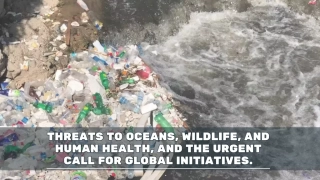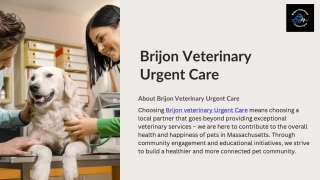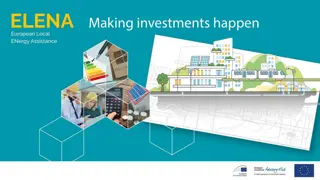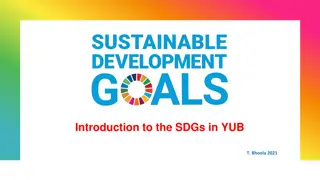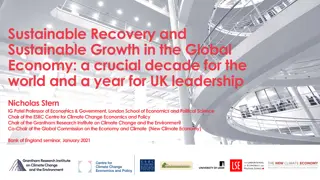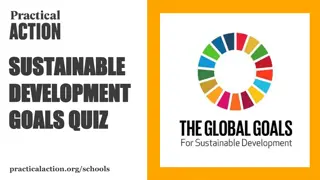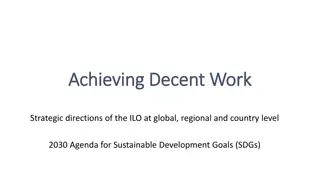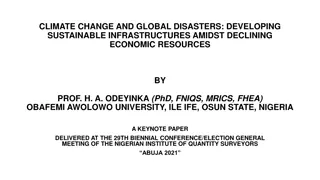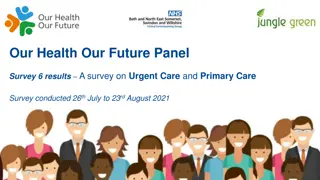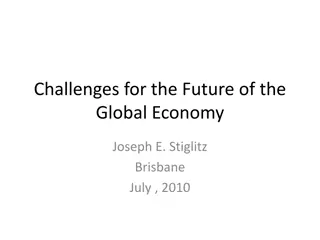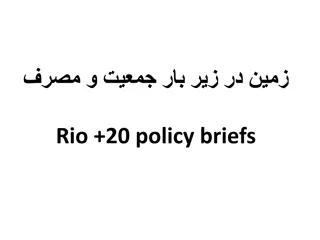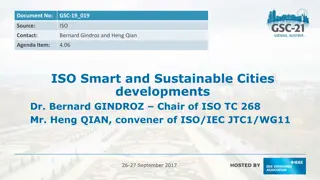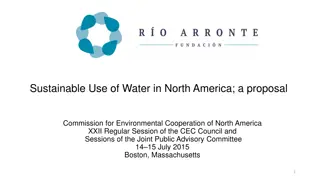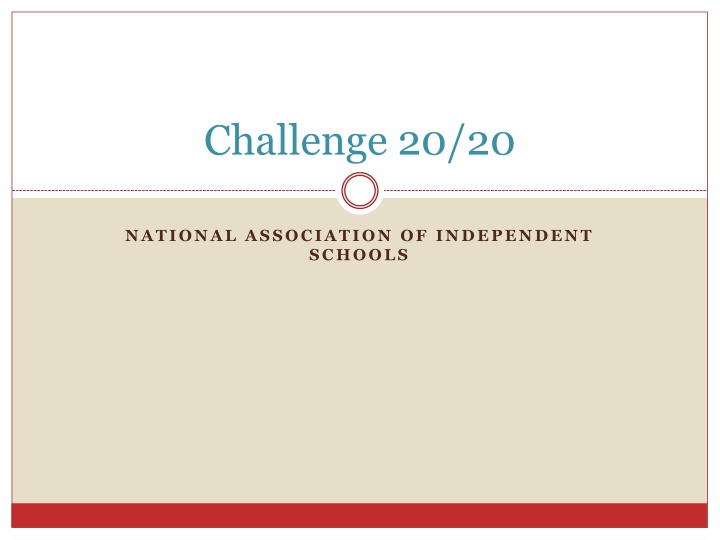
Global Challenges: Addressing Urgent Issues for a Sustainable Future
Addressing the pressing global issues outlined in the provided content is crucial for creating a sustainable future. From environmental challenges like climate change and biodiversity loss to social issues such as poverty and infectious diseases, a concerted global effort is needed to tackle these complex problems. The content highlights the two big forces shaping our world, key challenges like demographic explosion, and 20 global problems spanning planetary, humanitarian, and rulebook-related issues. The call to action is clear: collaborative solutions must be pursued to pave the way for a better world.
Download Presentation

Please find below an Image/Link to download the presentation.
The content on the website is provided AS IS for your information and personal use only. It may not be sold, licensed, or shared on other websites without obtaining consent from the author. If you encounter any issues during the download, it is possible that the publisher has removed the file from their server.
You are allowed to download the files provided on this website for personal or commercial use, subject to the condition that they are used lawfully. All files are the property of their respective owners.
The content on the website is provided AS IS for your information and personal use only. It may not be sold, licensed, or shared on other websites without obtaining consent from the author.
E N D
Presentation Transcript
Challenge 20/20 NATIONAL ASSOCIATION OF INDEPENDENT SCHOOLS
Basis for Challenge 20/20 High Noon: 20 Global Problems, 20 Years to Solve Them, by JF Rischard http://www.global-issues-network.org/
The Two Big Forces Unprecedented Stresses Technological & Economic Revolution New World Economy Unprecedented Opportunities Demographic Explosion Unprecedented Stresses
Demographic Explosion and Unprecedented Stresses Urbanization Food Energy Infectious Disease Loss of Forests Fisheries Depletion Biodiversity losses Maritime pollution Water scarcity Aging population Migration Poverty
20 Global Problems: Sharing Our Planet Sharing our planet: Issues involving the global commons 1. Global warming 2. Biodiversity and ecosystem losses 3. Fisheries depletion 4. Deforestation 5. Water deficits 6. Maritime safety and pollution
20 Global Problems: Sharing Our Humanity Sharing our humanity: Issues requiring a global commitment 7. Massive step-up in the fight against poverty 8. Peacekeeping, conflict prevention, combating terrorism 9. Education for all 10. Global infectious diseases 11. Digital Divide 12. Natural disaster prevention and mitigation
20 Global Problems: Sharing Our Rulebook Sharing our rulebook: Issues needing a global regulatory approach 13. Reinventing taxation for the 21st century 14. Biotechnology rules 15. Global financial architecture 16. Illegal drugs 17. Trade, investment, and competition rules 18. Intellectual property rights 19. E-commerce rules 20. International labor and migration rules
Global Infectious Disease AIDS, malaria, tuberculosis, pneumonia, diarrhea, and measles now kill 13 million people a year 40 million people suffer from AIDS 95% are in developing countries 28 million in Africa Every day, 15,000 get infected, mostly between 15-24 Has slowed in Africa Accelerated in India, Russia, the Caribbean, and China. Affects economy, education and workforce
Global Infectious Disease Malaria Caused by a mosquito-borne parasite Preventable 300-500 clinical cases a year 90% in sub-Saharan Africa One million people die from it each year Without malaria, Africa s GDP would be $100 billion higher
Global Infectious Disease Tuberculosis Caused by bacteria spread mostly by already infected people s coughing 8-10 million new cases of TB a year Major increase in African populations heavily affected by AIDS Greatest burden in Asia 2 million people die from it each year Costs the world $12 billion a year in lost income
Proposed Agenda for Global Action Strengthen health systems in many developing countries Special emergency funds to prevent and treat the three major infectious diseases Give laboratories bigger incentive to develop products Create tax incentives in rich countries to encourage development and clinical testing of products Develop a tiered drug-pricing system to make drugs both affordable and profitable Construct a global public health approach that focuses on the good of the global public 1. 2. 3. 4. 5. 6.
Challenge 20/20 Guidelines Do further research on the chosen topic. Look for inconsistencies or categorical statements made by different theorists and scientists. Develop a proposal which identifies the problem, both perceived and real and which includes those things which might prove to be challenges. This must be a clearly defined research purpose or question that resonates well with both teams, that is feasible in terms of resources, and defines a local problem which is a good fit with the global concern. Produce as many ideas as possible over a period of several days, keeping the lines of communication open so that there is an incubation period.
Challenge 20/20 Guidelines Generate and select criteria to evaluate solution ideas. Weigh the action ideas, using criteria to analyze and evaluate the most promising idea. Create your plan of action which should be based on combining and elaborating on the higher rated ideas. For a pilot project we understand that solutions can't be implemented but there must be an implemental plan and evidence must be given by both schools that this will be continued beyond the submission date.
Challenge 20/20 Guidelines Create a website in collaboration with your partner school to present your solutions. In addition to a website, schools can choose to create supporting materials and programs such as PowerPoint presentations, posters, plays, scripts, journal entries, photographs, etc. Send your photographs, reports, PowerPoint presentations and other materials to NAIS. Those participating in Term One should submit these materials in January 2012 and those participating in Term Two should submit their materials in April 2012.
Student Involvement Need to set up TakingItGlobal accounts http://www.tigweb.org/tiged/ http://mmiprep.tiged.org/biotechnology/register/ Student registration code: NAIS2020
Points of Collaboration The points at which collaboration must occur and be documented: Sharing perspectives Defining and clarifying the issue Identifying interests Generating ideas Developing criteria for deciding on a plan Evaluating options Developing plan Sharing implementation strategies

